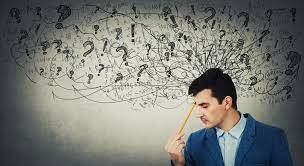Last Updated on November 27, 2022 by Tayyaba Khan
Critical thinking is among the most sought after skills, just like research and analytics. In today’s era, it has become easy to spread false rumours or information. Critical thinking prevents any form of misdirection. It makes us self-sufficient in tackling the challenges of the world. Critical thinking is often associated with other progressive skills like decision-making and problem-solving.
Let’s take a better look at the role critical thinking plays in education:
Table of Contents
Active Learners Vs Passive Recipients
Critical thinking skill distinguishes us as active learners from passive recipients. What does that mean?
A passive recipient makes up for the majority of the human populace. These individuals will come across any piece of information, perceive it, absorb it, and even remember it. They won’t delve deeper into the fact, authenticity, and accuracy of the information.
Meanwhile, active learners are consistently seeking proof, logic, reason, facts, and more before absorbing any piece of knowledge.
This difference might seem minor, but it creates a massive difference in education:
- A critical thinker would be curious to learn more about a specific subject or topic. These are the students that ask ‘Why?’ behind many explanations.
- They will often try to come up with different methods of solutions. For instance, solving a mathematics equation could have more than one way.
Meanwhile, passive recipients would listen to the information and absorb it without questioning it.
Pro Tip: Essay writing is one of the best ways to enhance and improve your critical thinking in education. The more research-oriented an essay is, the better it could be.
Other Benefits Of Critical Thinking In Education
The above-given difference could easily show the massive difference between the critical thinkers and others. However, there are many other skills accompanied by critical thinking that can massively benefit a person in education:
Analytics
A critical thinker will often think about the subject or topic holistically. They will make sure to understand the topic clearly before moving on. Analytics often enables them to understand what specifically do they not know about a topic.
Research
If they don’t understand the subject, they will conduct various research. This research range from understanding the perspective of other people in an argument to digging out sources and learning facts.
Evaluation
The collected data, or information, will then be used to compile and understand the information. They will see if they can understand the topic better. If not, they will prompt questions. The same applies to any argument. If they deem their argument or points logical, they will move further with it.
Inference
While most critical thinkers would have the above three qualities, they often lack this one. Inference lets them understand whether picking up questions, arguments, or anything is worth the time and effort.
It helps them distinguish between wasting time and effort or utilising them for learning.
Phenomenal Decision Making And Problem Solving Aptitudes
Invoking critical thinking during education could lead a student to become better at making decisions and solving problems. Often, a critical thinker could be good in one of the two, but there are rare cases of a person being good in both.
Both problems solving and decision making are highly sought-after skills, much like critical thinking.
The Application Of Critical Thinking In Life
Critical thinking acquired from education could also be incorporated into day-to-day life. It helps the person become logical and apply logic to everything. They will always use reason and never be irrational. Even if they lose an argument, they will never revert to insults. They will take facts under consideration.
Perhaps one of the best qualities of critical thinkers is that they are willing to admit if they are wrong and learn from it. Other benefits in real life include:
- Becoming an independent thinker and having free will. These individuals won’t be manipulated easily by misinformation.
- Thinking rationally and considering other people’s perspectives, experiences and other point-of-view to get things across.
The Evil Of Education Against Critical Thinking
There’s a misconception that education is fabricated to turn everyone into obedient mobs. But that’s not the case. Often, education is aimed to help a person become an independent thinker or acquire critical thinking.
Unfortunately, some professional teachers wouldn’t like students with critical thinking. These students are often marked as trouble makers or problem students. Teachers might even ignore them or refrain from answering because they could be asking too many questions.
That’s where it is pivotal to hire truly professional and well-versed teachers to help nurture critical thinking.
The Bottom Line
Critical thinking doesn’t make a person cold or emotionless. It makes them more considerate and calm individuals. They are mostly ‘sorted’ in their ways and have the ease of adjusting or adapting to changing lifestyles.
Apart from this if you are interested to know about Educational Toys For Kids, Newborns, Babies then visit our education category.






















